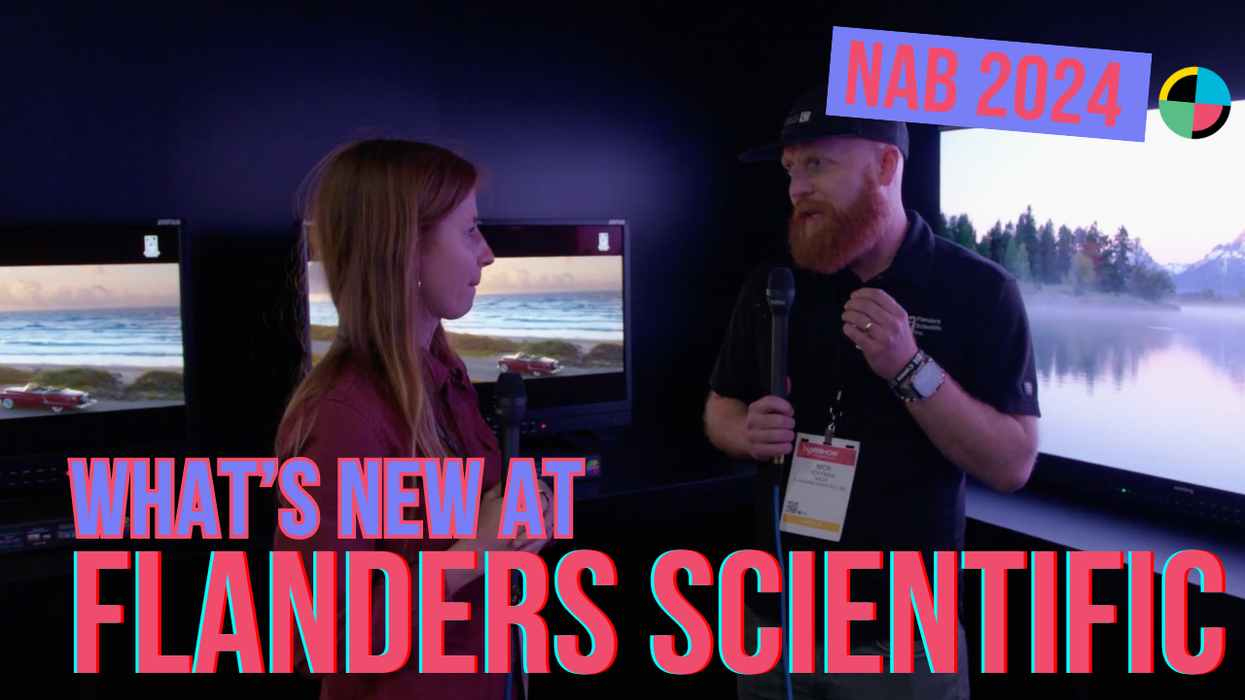SD, HD, 4K, and Beyond: Learn All about Video Resolution in 7 Minutes
Video resolution has gone through some big changes over the years.

Hey, all you young filmmakers who grew up watching your favorite movies and TV shows on sleek UHD sets and monitors...how I envy you.
I mean, not really. I guess there's some sort of pride that goes along with having to sit super close to an old Magnavox and realizing that's not confetti falling all over the Macy's Thanksgiving Day Parade...it's static.
But instead of listening to this millennial have a bitter "back in my day" moment, why not learn about the history of video resolution from Basic Filmmaker, including the early days of Standard Definition, the switch from interlaced to progressive scan, and the age-old outdated-tech-dragging that is sure to outlive us all.
History is nice, but I doubt that's the subject at the forefront of anybody's mind. History never is, the poor girl.
You're probably thinking of the video resolution hierarchy:
- What's the best one
- How soon is too soon to dump on late adopters?
Here's my answer:
- There isn't a "best" one
- Save your dumping for the powder room, young squire.
When I first started shooting videos, I was a total 720p fangirl. I figured people would be watching my stuff on small computer screens and phones and I doubt my short about a lonely, mustachioed paranormal investigator is going to have much of a theater run, soooooo...720p was fine.
But pretty soon, it wasn't fine...because 1080p was en vogue. "What? You shoot in 720? You might as well shoot on VHS tapes." Well, I used to and I would now just out of spite, friend.
Then 4K came along and I was way behind. People probably thought I was a bad filmmaker, right?
But I wasn't really. I mean, I was, but not because I shot in 720p. I simply didn't use the newest technology, which is fine. Are people going to call me a bad driver because my car doesn't have a fancy HUD? I can parallel park like a damn champion, but they want to dog on me because I don't have heated seats?
In my opinion, the resolution you go with is a stylistic choice. If you're shooting a sports event, nature doc, or action flick, yeah, it makes sense to have the clearest picture quality you can get. If you're shooting a drama, comedy, or some other kind of project in which movement and detail on screen isn't the main focus, then damn, you could save yourself a lot of time and data storage space by shooting in HD.
Of course, you won't be able to crop in without losing image quality, and that lower resolution might date your work later on, but there's always a give and take with decisions like this. Personally, I don't like the crisp, clean look of UHD for the vast majority of my projects. I like the gritty, dirty, grainy look...aged and flawed and reminiscent of my own childhood. Also, my work is probably not going to be shown on a big ol' screen, so the lower resolution probably won't even be noticed. Even when one of my films screened in theaters, nobody commented on the poor visual quality.
And that's the big point here that the video actually comments on: audiences rarely notice when something isn't shot in 4K...what they do notice is bad storytelling, bad audio, and bad cinematography (focus, lighting, etc.). At the end of the day, it's more important to nail these other areas of filmmaking than to make sure you have a camera with the most advanced shooting capabilities.
But that's just my opinion. What's yours?
Source: Basic FIlmmaker

 No Film School's coverage of
No Film School's coverage of 









